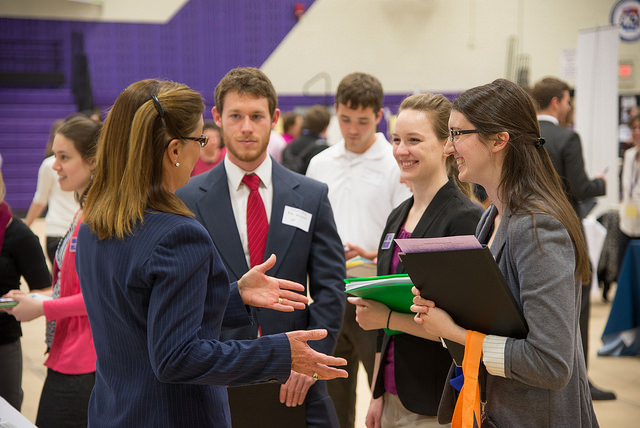 View Winners →
View Winners → College to Career Transition: Where Schools Fall Short

By Horatiu Stefan
College is an important milestone for students and parents alike. It is the culmination of years of hard work and sacrifice, and a significant investment of time and resources in education. Parents help their children make the transition from high school to college, and then assume or expect (or pray) that colleges and universities will take it from there, helping their children find a career direction and acquire the skills and experience needed to transition from college to career.
In reality, research shows that there is a substantial gap between what parents and students expect and what colleges and universities provide when it comes to career planning and development. Seventy-two percent of parents surveyed by Noodle, an education portal, ranked “acquisition of real-world marketable skills” as highly important, but only 43 percent felt that their child’s college or university delivered, despite skyrocketing tuition, the burden of student debt, and a job market for new graduates that is improving, but still has not recovered from the great recession.
While all colleges and universities have career services offices, they are understaffed, under-resourced, and outdated at even the best of institutions, something that has very real and lasting consequences. Studies by the New York Fed and Accenture show that 44 to 49 percent of recent graduates work part-time jobs or jobs that do not require a college degree. Research by Georgetown University’s Center on Education and the Workforce shows that new graduates will earn less and have more spells of unemployment over the next 10 to 15 years that those who graduated before the great recession; troubling, to say the least.
All of this goes to say that parents need to not only demand more from colleges and universities, but also take a more active role in their children’s professional development. I know what you’re thinking, but there are ways to do this without ‘helicoptering’ in and creating unnecessary anguish. Rather than asking “What do you want to do when you graduate?” parents can ask their children to tell them more about their interests and introduce them to friends and colleagues working in those fields. Conducting informational interviews, 20 to 30 minute informal conversations with experienced professionals, can yield important insights into potential career paths and all-important referrals that can lead to high-quality internships or jobs.
Parents can also ask their children about specific companies they are interested in, make introductions, and encourage them to shadow someone for a day or ‘extern’ during school breaks. Both present students with opportunities to gain exposure and experience in a real-world setting. And it goes without saying that parents can encourage and even assist their children in securing summer internships. The Georgetown study reveals that 63 percent of graduates who completed paid internships received job offers after graduation compared to the 35 percent of graduates who did not, and that graduates who completed internships earned a starting salary 28 percent higher than those who did not. Summer internships are clearly essential, but in a highly competitive market, junior year internships are no longer enough: more and more students are interning during their sophomore summers as well.
Today’s college students face a unique set of challenges as they discover their paths. Their decisions about classes, majors, and extracurricular activities will have a significant impact on their long-term career options, starting with the internship opportunities they will have, which will in turn impact their ability to secure a desirable first job upon graduation. Study after study shows that colleges and universities are not doing enough to improve students’ career readiness and prepare them for the transition from college to career; and employers are noticing. Beyond holding schools accountable, parents need to step in, albeit gingerly, and take a more active role in their children’s professional development.
Horatiu Stefan is a career coach that works with students and recent graduates. Contact him at horatiu@consilium.partners.












































































































